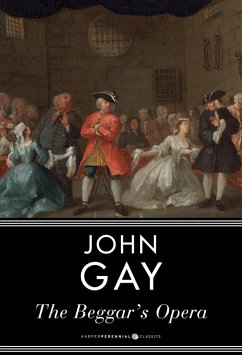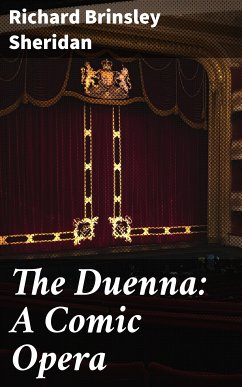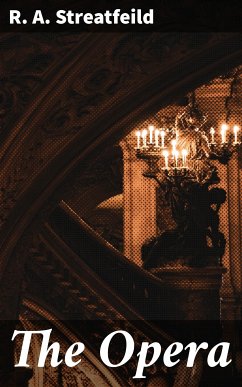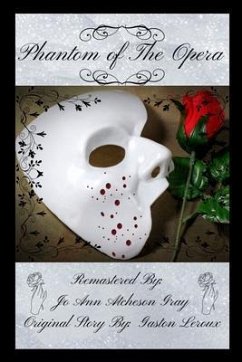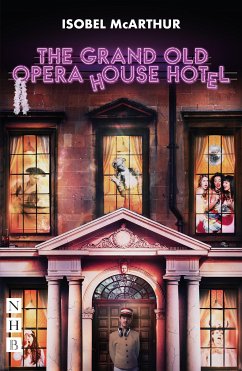
The Beggar's Opera (eBook, ePUB)
A satirical ballad opera critiquing 18th century England's corruption, hypocrisy, and societal norms through music, drama, and clever wit.

PAYBACK Punkte
0 °P sammeln!
In "The Beggar's Opera," John Gay masterfully intertwines social satire and musical elements to critique the corruption, vice, and the moral ambiguity of early 18th-century London. Written in the form of a ballad opera, the play features a cast of rogues and outcasts, delivering a biting commentary on class disparities and the hypocrisy of the ruling class. With a witty and accessible literary style, Gay'Äôs work employs a blend of spoken dialogue and song, casting traditional operatic norms aside to create a rich tapestry of popular culture that resonates with both the elite and the common ...
In "The Beggar's Opera," John Gay masterfully intertwines social satire and musical elements to critique the corruption, vice, and the moral ambiguity of early 18th-century London. Written in the form of a ballad opera, the play features a cast of rogues and outcasts, delivering a biting commentary on class disparities and the hypocrisy of the ruling class. With a witty and accessible literary style, Gay'Äôs work employs a blend of spoken dialogue and song, casting traditional operatic norms aside to create a rich tapestry of popular culture that resonates with both the elite and the common folk. This innovative approach helped lay the groundwork for modern musical theatre, establishing a unique voice within the broader context of Restoration drama. John Gay, born in 1685 in a modest family, was a keen observer of society, which greatly influenced his writing. His experiences in the literary and theatrical circles of London exposed him to a range of social issues. "The Beggar's Opera" emerged not only as a reflection of the tumultuous socio-political climate of his time but as a response to the burgeoning middle class, who sought representation in the arts. Gay'Äôs personal struggles and awareness of societal inequalities fueled his motivation to craft this distinctive work. This book is a must-read for anyone interested in the evolution of drama and musical theatre, as it challenges societal norms while entertaining its audience. Gay'Äôs sharp wit illuminates the darker corners of human nature, making "The Beggar's Opera" a timeless commentary on morality and class that continues to resonate today. Its blend of humor and social critique invites readers to reflect on the complexities of human behavior across the centuries.
Dieser Download kann aus rechtlichen Gründen nur mit Rechnungsadresse in A, B, BG, CY, CZ, D, DK, EW, E, FIN, F, GR, H, IRL, I, LT, L, LR, M, NL, PL, P, R, S, SLO, SK ausgeliefert werden.




